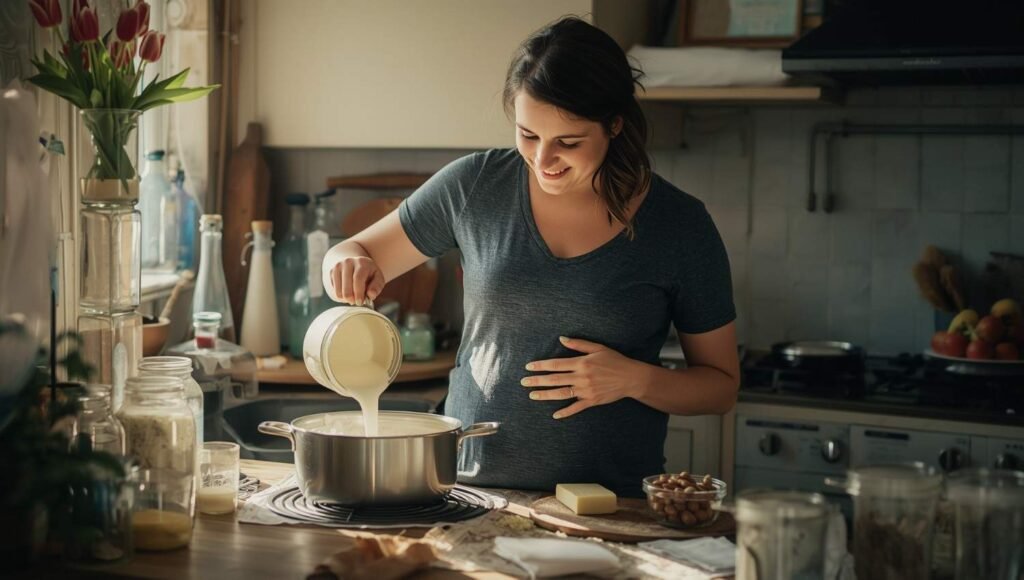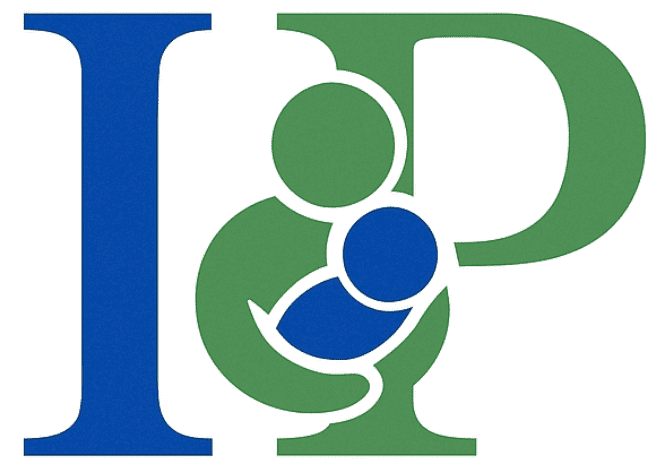Introduction
Understanding cheese and pregnancy: a parent’s guide to safety, nutrition, and enjoyment can feel overwhelming at first because food rules during this time can be confusing — especially when you hear mixed advice about certain cheeses and what’s safe to eat. As someone who has personally helped expecting mothers navigate cheese options in the grocery store, I’ve seen that pasteurized cheese can absolutely be a healthy part of your pregnancy diet when you carefully read label details and make informed choices. Cheese is a beloved dairy product with a multitude of flavors, textures, and forms, and once your body undergoes changes, your increased intake of various nutrients becomes essential for the development of the baby.
Why Cheese Matters in Pregnancy?
Cheese is an excellent source of essential nutrients like calcium, protein, and vitamins A and B12, which are vital for development — especially for your baby’s bones and teeth. It’s one of the richest dietary sources that supports fetal growth, maternal tissue repair, immune function, and even red blood cell formation, vision, nervous system health, and maintaining healthy skin. That said, some cheeses pose risks, so enjoying it safely, with awareness of safe and unsafe types, ensures you still receive these powerful nutritional benefits and health benefits without missing out on this comfort food entirely. If unsure, even a skin specialist or doctor can guide you — but yes, you can enjoy cheese, fully and confidently.
What kind of cheese is safe during pregnancy?
When choosing cheese during pregnancy, the goal is to avoid harmful bacteria while still enjoying something nutritious that supports both you and your developing baby. Cheeses with lower moisture content slow down bacterial growth, making them a safer choice — especially when they are made from pasteurized milk through the pasteurization process, which involves heating the milk to eliminate harmful bacteria. This is particularly important for women undergoing fertility procedures like IUI treatment, where a nutrient-rich diet can support better reproductive outcomes and overall well-being.
You can still indulge in cravings without compromising health by opting for cheese that is steaming hot, which helps reduce risks even further. The right nutrition choices during pregnancy contribute to a safe lifestyle practice, supporting both comfort and nourishment — especially when calcium and protein are needed most.

Safe Types of Cheese to Consume While Pregnant
Most hard cheeses, like cheddar, parmesan, and Swiss, are safe to consume because they contain less moisture and are less likely to allow bacteria to grow easily. Pasteurized cheeses — including mozzarella, cream cheese, processed cheese slices, pasteurized feta, and ricotta — are also safe, as long as you always check labels to confirm they are made from pasteurized milk. When in doubt, eating cheese that is cooked very well and served steaming hot is a smart way to stay protected.
Other safe options include cottage cheese, paneer, processed cheese spreads, pasteurized milk, yoghurt, and even ice cream. Even a physiotherapist’s advice might emphasize making choices that support overall health, reminding you that safety doesn’t mean restriction — it simply means being label-aware and heat-smart.
What kind of cheese should I avoid during pregnancy?
Pregnant women should stay away from soft cheeses made with unpasteurized milk, as they may contain harmful bacteria like Listeria monocytogenes, which can lead to listeriosis — a serious infection linked to miscarriage, preterm labor, and even stillbirth. Cheeses such as Brie, Camembert, blue-veined cheeses like Roquefort, chevre, Danish blue, and Gorgonzola have higher moisture content, which increases the risk of bacterial contamination. These mold-ripened soft cheeses with a white coating are among the best-avoided options during pregnancy.
If you ever choose to consume them, they must be cooked very well until steaming hot. Always ensure the cheese is clearly labeled as pasteurized, handled properly, stored at the right temperature, and checked before the expiration date. Staying cautious and informed is the key to making safe cheese choices and protecting yourself from Listeria infection linked to unpasteurized milk.
The Risks of Listeria and Other Foodborne Illnesses Related to Cheese
Pregnant women are 10 times more likely to get sick from Listeria monocytogenes, which causes listeriosis — a serious condition that can lead to miscarriage, stillbirth, or even infection of the newborn. In addition to Listeria, other foodborne pathogens like Salmonella and E. coli can contaminate improperly handled or stored cheese, leading to food poisoning with symptoms such as nausea, vomiting, diarrhea, and abdominal pain, which are especially concerning during pregnancy.
To reduce risk of infection, always choose cheese made from pasteurized milk and follow safe food handling practices — refrigerate cheese promptly, use clean utensils, and avoid cross-contamination with raw foods. These small steps make a major difference in protecting both you and your baby.

How to Incorporate Cheese into a Healthy Pregnancy Diet?
Including cheese in meals can be delicious and nutritious when you explore a variety of cheese forms and flavors in your meals and snacks. You can grate or slice hard cheeses like cheddar over salads, pasta, or baked dishes for a natural nutritional boost. Pair cheese with whole-grain crackers, fresh fruit, or raw vegetables to balance carbohydrates, protein, and healthy fats, helping you stay satisfied and energized throughout the day.
Cottage cheese is extremely versatile — add it to smoothies, dips, or use it as a topping for pancakes or toast. For cooking, use pasteurized cheese in soups, casseroles, or omelets, ensuring soft cheese is heated steaming hot temperature to stay safe. Done right, cheese fits beautifully into a balanced pregnancy diet without the stress.
Lactose Intolerance and Cheese Consumption During Pregnancy
If you have lactose intolerance, certain dairy products may be challenging, but many still enjoy cheese thanks to its lower levels of lactose — especially hard and aged cheeses like cheddar, Parmesan, and Swiss. These are often well tolerated by those with lactose sensitivity while still offering strong nutritional benefits.
If needed, explore lactose-free cheese options available in most grocery stores, which offer the same great taste without intolerance issues. You can also use lactase enzyme supplements to digest lactose effectively and explore alternatives to prevent unwanted digestive symptoms during pregnancy.
The Role of Cheese in Fetal Development
Cheese plays a significant role in supporting your baby’s development thanks to its rich nutrient profile. It provides calcium, which is essential for the development of the baby’s bones and teeth, and helps prevent depletion of your own stores. The protein in cheese supports the formation of fetal tissues and organs, while aiding maternal tissue repair and supporting pregnancy hormones.
Nutrients like vitamin B12 assist in the development of the nervous system and the production of red blood cells, making cheese a valuable contributor to a balanced diet in pregnancy. With essential nutrients and informed cheese choices, you can support a healthy pregnancy and give your baby the best possible start for your child.
Guidelines when it comes to eating cheese while pregnant
Pregnant people are 10 times more likely to get a serious infection like listeriosis, especially from foods made with raw unpasteurized milk — so it’s important to steer clear of unsafe options. Always choose pasteurized varieties, since the process that heats food helps kill harmful bacteria. The good news is that most cheeses safe to consume are easy to find, and many soft cheeses are already in the dairy cooler section of stores.
Make sure to look for pasteurized clearly on the label, and avoid any cross-contamination risk by skipping cheese from individual blocks or deli cuts. Shredded cheese, sealed and labeled, is generally safer and easier to consume in pregnancy with confidence.

What cheeses tend to be pasteurized and safe?
Always read labels carefully and look for pasteurized when buying cheese. Safe options are usually found in the standard dairy cooler, and it’s best to avoid cheese cut from wheel to reduce cross-contamination risk. Common safe types include American, Colby, cheddar, Monterey Jack, pepper jack, Colby Jack, mozzarella, Muenster, provolone, Swiss, Gouda, Parmesan, and Romano — as well as cottage cheese, cream cheese, and ricotta.
Cheeses made from cow milk, goat milk, or sheep milk are all fine — as long as the label confirms they’re pasteurized.
What cheeses tend to be unpasteurized and/or unsafe?
Some soft cheeses, bacteria-ripened cheeses, and blue-veined cheeses found in deli or specialty aisles may or may not be pasteurized, which is why caution is essential. Items from a local farm stand or farmers market also fall into potentially unsafe cheeses — including Brie, Camembert, feta, Roquefort, queso fresco, queso Blanco, and panela. Always check labels carefully, and if the status is unclear packaging, ask a store associate — or simply choose something else.
Even though federal laws restrict selling illegal raw milk, some cheeses aged longer than 60 days are still sold — but they may not be worth the risk during pregnancy.

Risks of consuming unsafe cheeses during pregnancy
Unpasteurized cheeses may contain E. coli or Listeria, both harmful strains known to cause food poisoning. Pregnant people have a higher risk during pregnancy, and while some cases are mild infections, others may lead to life-threatening complications like blood infection or meningitis, which is the inflammation of membranes around the brain.
The biggest concern is that you might pass on illness to the baby without even feeling sick — risking miscarriage, premature birth, or even infant death from infection.
What to do if you’ve consumed unsafe cheese?
If you’ve accidentally eaten unsafe cheese, the first step is to try not to worry — it happens more often than people think. The CDC estimates 1,600 people are ill each year, and around 260 die, but most cases are mild. Still, keep an eye on symptoms like diarrhea, stomach upset, or any flu-like symptoms such as fever or muscle aches, as a serious infection can take 1 to 4 weeks to develop, and in rare cases, even up to 70 days after eating contaminated foods.
If you feel unwell or have potential exposure, contact your doctor right away. They may order a blood test for infection and prescribe antibiotics if necessary to ensure both you and your baby stay safe.
Expert Recommendations: Healthcare Providers on Cheese and Pregnancy
Most experts recommend selecting safe cheese varieties and always opting for pasteurized milk, while you avoid unpasteurized soft cheeses due to their higher risk of bacterial contamination. Your doctor or dietitian may offer personalized advice based on your dietary needs and health status, helping you maintain a balanced diet rich in vital nutrients while still enjoying food in moderation.
They often suggest a varied diet with fruits, vegetables, whole grains, and lean proteins, and can tailor guidance for lactose intolerance or other dietary restrictions. With expert guidance, you can confidently enjoy cheese as part of your pregnancy journey — safely and stress-free.
The takeaway
Your favorite pasteurized cheeses can absolutely be a part of a pregnancy diet — just read labels carefully, and ask questions if the pasteurization status is unclear. If you love unpasteurized cheeses, stay strong — you can enjoy them after baby is born with much less worry, so go ahead and pin those fancy cheese plate recipes for later.
Frequently Asked Questions (FAQs)
1. Can I eat cheese while pregnant?
Yes — as long as it’s made from pasteurized milk. Pasteurized cheeses are considered safe to eat during pregnancy and are widely available in grocery stores.
2. Which cheeses are the safest during pregnancy?
Hard cheeses like cheddar, Parmesan, and Swiss are very safe. Pasteurized soft cheeses such as mozzarella, cream cheese, ricotta, and cottage cheese are also safe when the label confirms they are pasteurized.
3. What cheeses should I avoid completely?
Avoid soft cheeses made from unpasteurized milk , such as Brie, Camembert, Roquefort, queso fresco, or anything with a white coating or mold-ripened surface — unless they are cooked very well and steaming hot.
4. What are the risks if I accidentally eat unsafe cheese?
You may be exposed to Listeria, which can cause listeriosis. Watch for flu-like symptoms, fever, diarrhea, or stomach upset, and contact your doctor immediately if concerned.
5. Can I still eat cheese if I have lactose intolerance?
Yes — hard and aged cheeses like cheddar, Parmesan, and Swiss contain lower levels of lactose and are often tolerated. Lactose-free cheese options are also widely available.
6. Do I always need to heat cheese before eating it?
Not always. Pasteurized cheeses are safe to eat as they are. But soft unpasteurized cheeses must be cooked until steaming hot to be considered safe.
7. Is cheese actually good for my pregnancy?
Absolutely — cheese is rich in calcium, protein, and vitamin B12, all of which help support the development of your baby’s bones, blood cells, and nervous system.

